Cabin Fever is a film of genre Drama with Gørild Mauseth
Cabin Fever (2000)

If you like this film, let us know!
- Infos
- Casting
- Technical infos
- Photos
- Videos
- Film quotes
- Characters
- Music
- Awards
Cabin Fever (Norwegian: Når nettene blir lange) is a 2000 Norwegian drama film written and directed by Mona J. Hoel, starring Svein Scharffenberg and Gørild Mauseth. It was the first attempt in Norway at a Dogme film. The film portrays an extended family vacationing together in a cabin in the mountains, and the internal conflicts that emerge.
Actors

Gørild Mauseth
(Liv)

Zbigniew Zamachowski
(Stanislaw)
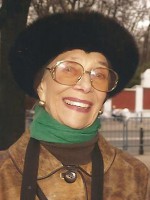
Wiesława Mazurkiewicz
(Irina)

Krister Henriksson
(The Swede)

Jerzy Nowak
(Olek)

Irena Kwiatkowska
Comments
Leave comment :
Suggestions of similar film to Cabin Fever
There are 21 films with the same actors, 61786 with the same cinematographic genres, to have finally 70 suggestions of similar films.If you liked Cabin Fever, you will probably like those similar films :
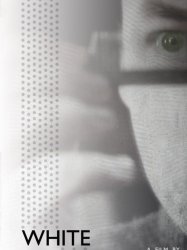
Three Colors: White (1994)
, 1h40Directed by Krzysztof Kieślowski
Origin France
Genres Drama, Comedy, Romance
Themes Films about immigration, Films about marriage
Actors Zbigniew Zamachowski, Julie Delpy, Jerzy Stuhr, Janusz Gajos, Aleksander Bardini, Juliette Binoche
Rating75%





After opening with a brief, seemingly irrelevant scene of a suitcase on an airport carousel, the story quickly focuses on a Paris divorce court where Karol Karol (Zbigniew Zamachowski) is pleading with the judge — the same legal proceedings that Juliette Binoche's character briefly stumbled upon in Blue. The immigrant Karol, despite his difficulty in understanding French, is made to understand that his wife Dominique (Julie Delpy) does not love him. The grounds for divorce are humiliating: Karol was unable to consummate the marriage. Along with his wife, he loses his means of support (a beauty salon they jointly owned), his legal residency in France, and the rest of his cash in a series of mishaps, and is soon a beggar. He only retains a 2 franc coin.

The Birch-Tree Meadow (2003)
, 1h30Directed by Marceline Loridan-Ivens
Origin German
Genres Drama
Actors Anouk Aimée, August Diehl, Marilú Marini, Claire Maurier, Zbigniew Zamachowski, Nathalie Nerval
Rating64%





Myriam, qui vit à New York depuis une cinquantaine d’années, revient en Europe pour la commémoration annuelle des anciens d'Auschwitz. Elle décide de retourner à Birkenau où elle a jadis vécu dans l’enfer des camps de concentration.
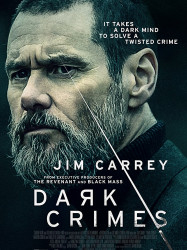
Dark Crimes (2018)
, 1h32Directed by Alexandros Avranas
Origin USA
Genres Drama, Thriller, Action, Crime
Actors Jim Carrey, Charlotte Gainsbourg, Marton Csokas, Kati Outinen, Agata Kulesza, Zbigniew Zamachowski
Rating46%





Tadek, un policier polonais, enquête sur le meurtre d'un homme d'affaires non résolu. Il découvre que son assassinat est semblable à celui décrit dans un roman de l'écrivain Krystov Koslow. Obsédé par ce crime, Tadek rencontre la petite amie de ce dernier, Kasia, qui est une travailleuse du sexe qui va le faire plonger dans un monde souterrain pervers, où règnent la corruption et le sexe.
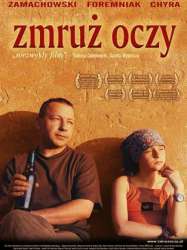
Squint Your Eyes (2003)
, 1h28Directed by Andrzej Jakimowski
Origin Pologne
Genres Drama, Comedy, Comedy-drama
Actors Zbigniew Zamachowski, Małgorzata Foremniak, Andrzej Chyra
Rating65%





Une fillette de 10 ans fugue pour s'échapper d'un foyer riche avec lequel elle ne s'entend pas.

Run Boy Run (2014)
, 1h48Directed by Pepe Danquart
Origin German
Genres Drama, War
Themes Films about children, Films about religion, Political films, Films about Jews and Judaism
Actors Zbigniew Zamachowski, Mirosław Baka, Andrzej Tkacz, Grażyna Szapołowska, Itay Tiran, Rainer Bock
Rating71%





Srulik, Juif Polonais de 8 ans et demi, fuit le ghetto de Varsovie, où il vit avec ses parents et son frère. Après la perte de sa famille, commence alors pour lui un long périple pour échapper aux soldats qui le recherchent. Pour survivre, Srulik doit tout oublier de son ancienne vie. Mais peut-on oublier son propre nom ?
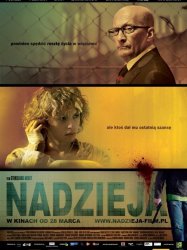
Hope (2007)
, 1h41Genres Drama, Action
Actors Wojciech Pszoniak, Zbigniew Zapasiewicz, Zbigniew Zamachowski, Jerzy Trela, Jan Frycz
Rating60%






Distant Lights (2003)
, 1h45Directed by Hans-Christian Schmid
Genres Drama
Themes Films about immigration
Actors Zbigniew Zamachowski, Maria Simon, Sebastian Urzendowsky, August Diehl, Julia Krynke, Alice Dwyer
Rating75%





Unlike many ensemble films, the subplots of the film mostly do not interconnect with each other, and the film ends without a finale. Instead, the story threads illustrate life on the border between two countries; what appears to be poverty and desperation to some is a promised land for others, worth risking their lives to reach. The threads are:
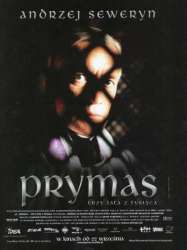
Prymas - trzy lata z tysiąca (2000)
Directed by Teresa Kotlarczyk
Genres Drama, Historical
Actors Andrzej Seweryn, Maja Ostaszewska, Zbigniew Zamachowski, Jerzy Trela, Mariusz Benoit, Piotr Adamczyk
Rating63%






Demons of War (1998)
, 1h37Genres Drama, War, Action, Historical
Themes Political films
Actors Bogusław Linda, Olaf Lubaszenko, Zbigniew Zamachowski, Mirosław Baka, Bartłomiej Topa, Zbigniew Zapasiewicz
Rating62%





After the Bosnian War, Bosnia and Herzegovina is occupied by the NATO-led (IFOR) Implementation Force. In February 1996, a unit of Polish IFOR troops detains and releases three foreign mercenaries in Srebrenica, before they can be executed by a Bosnian mob. The Polish unit is led by Major Edward "Edek" Keller (Boguslaw Linda). Soon later, Keller is under investigation for insubordination and for clashes with the Bosnian militia and foreign mercenaries. The investigation is led by two arriving officers - Lieutenant Czacki (Olaf Lubaszenko) and Major Czesław Kusz (Tadeusz Huk), who will replaced Keller as the commanding officer of the battalion on 1 March. The investigation comes at a sensitive time for Polish forces, as the Polish government tries to become a member of NATO. Keller maintains command of the unit, until his commission ends.

Aftermath (2012)
, 1h47Genres Drama, Thriller
Themes Films about religion, Political films, Films about Jews and Judaism
Actors Maciej Stuhr, Jerzy Radziwiłowicz, Zuzana Fialová, Zbigniew Zamachowski, Danuta Szaflarska
Rating72%





The film is a contemporary drama. It takes place in the fictional village of Gurówka in 2001. The story begins with the return of Franciszek Kalina (Ireneusz Czop) to his hometown in rural Poland after having lived in Chicago for decades. He learns that his brother Józef (Maciej Stuhr) is shunned by the community for acquiring and displaying on his farmland dozens of Jewish tombstones which he discovered had been used by German occupying forces as paving stones in a now abandoned road. Józef is gathering the tombstones everywhere in the settlement and moves them into his own field to survive from oblivion. Against the growing opposition of the town residents, the Kalina brothers attempt to learn more about what happened to the Jews of the village. Their personal relationship, harsh after the brothers met, warms and becomes more cooperative after they both find themselves opposed by the whole village. The older priest blesses the brother and urges him to continue gathering the tombstones while the new one, to head the parish soon, displays no sympathy for Jews. Franciszek discovers in a local archive that his father along with other men of the village got the land that had been owned by Jews before the war. He is eager to study the truth. After speaking to some of the oldest residents in the village, they later realize that half the residents murdered the other half (led by a neighbor and their father Stanisław Kalina). This discovery results in a terrible fight and split between the brothers after a dispute about the bones of the Jews they found the night before. Józef, after learning that their own father was directly involved in the murder of the Jews who were burned to death in Józef's family's former house, the brother's roles are reversed and it is Józef that wants to hide the truth from coming out to the world and Franciszek that wants all the world to know the truth and for the bones of the murdered Jews to be taken to their wheat fields and buried with their headstones, so as to not compound the terrible sins of their father and the neighbors. In their fight, Franciszek comes close to killing his brother Józef but Franciszek stops himself, puts the ax down and leaves the village but is returned to the village by a hospital nurse/doctor, the daughter of one of the oldest surviving neighbors who had known the truth but kept it secret, to see his brother beaten, murdered and crucified in their own yard. The movie ends with a scene of a group of young and older Israeli Jews being led by an Orthodox Rabbi reciting the Kaddish, the Jewish prayer in memory of the dead, in front of a formal memorial stone, at the now restored cemetery that Józef had made in his fields, while Franciszek watches with respect, lights a candle, leaves it on one of the tombstones and nods slightly to the scene, turns and walks away, satisfied that these Jews are now buried where their lives and their deaths, can be remembered and honored, while at the same time, lighting a candle, in remembrance and in honoring his own brother, Józef who was crucified by unknown neighbor(s), symbolically dying for the sins of his father and the neighbors.
 Connection
Connection